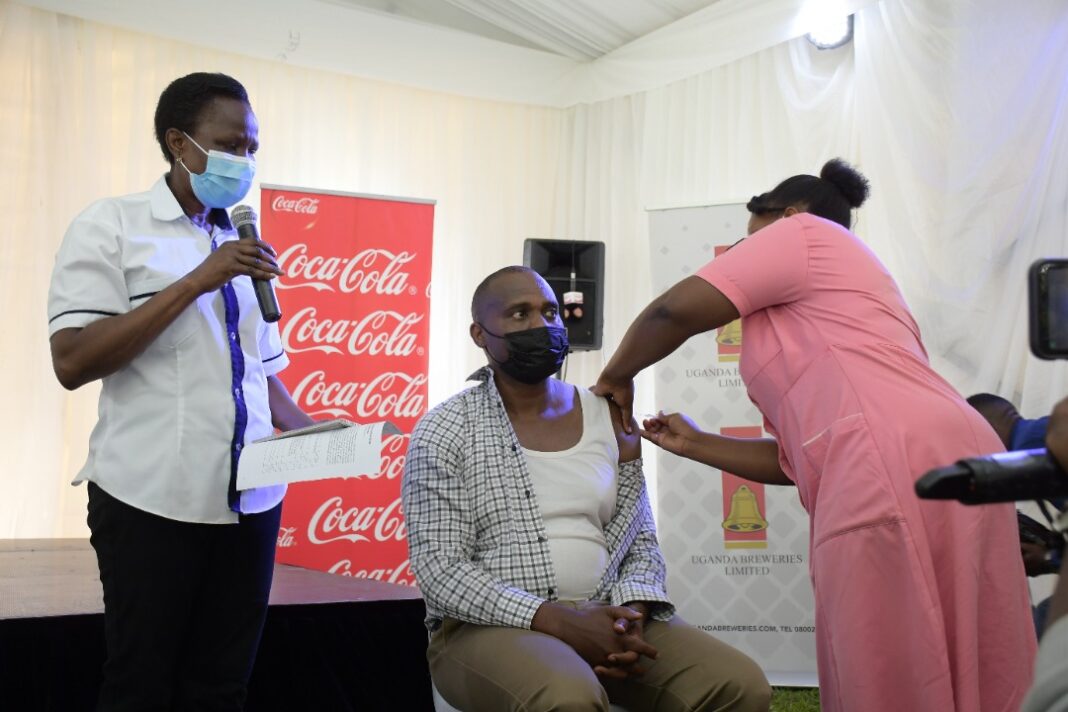As Parliament processes the Public Health (Amendment) Bill, 2021, Uganda Law Society (ULS) wants the proposal for mandatory Covid-19 vaccination should be dropped and allow the public to consent to it.
They propose that the bill should consider circumstances under which an individual may reject vaccination and loosen on the punitive measures.
“Our view as Uganda Law Society is that there should be informed consent before any medical procedures are taken,” said Justinian Kateera an advocate and a member of ULS.
Citing International Health Rights and the International Human Rights Law, Kateera said there is need for the bill to protect and promote human rights even in the face of pandemics or critical public health issues.
“When subjected to medical examinations, the authorities should seek prior consent and carryout procedures that are non-intrusive. The preventive measures should comply with generally accepted standards of human rights”, Kateera said.
Kateera led a delegation of lawyers from ULS to the Committee of Health on Tuesday, 01 March 2022 where they made recommendations on the Public Health (Amendment) Bill.
Mbabazi. K Emejeit, a member of ULS and Executive Director at Diamond Trust Bank made a case on why the punitive measures for non-compliance to Covid-19 vaccination should be less stringent.
Mbabazi said there are various circumstances under which a person may refuse vaccination.
“A person may have refused mandatory vaccination because they have other health conditions; we have seen people we know who passed away because they were vaccinated when they did not know they had underlying conditions,” Mbabazi said.
The bill proposes a six months jail term or Shs4 million for those who refuse vaccination against Covid-19.
On vaccination in children, she said the bill should provide for parents to consent for their children if they are to receive any vaccination as provided in the constitution.
“The bill is open about rights of children and does not provide consent of parties. This is contrary to article 34 of the constitution which provides that laws should be implemented to ensure that children have rights to be cared for by their parents or those entitled by the law to care for them,” Mbabazi said.
Legislators said there is need to strike a balance between observing human rights and saving lives. They said it would be imprudent to leave the public to decide on whether to take on vaccination or not during a pandemic like Covid-19 where one positive individual can infect an entire community.
“Immunization is not meant to protect one individual but the whole public. This should not be a matter of human rights; one’s right should not infringe on other people’s rights, because when you get meningitis you take it to others, when you get polio, you infect others” said Dr. Elisa Rutahigwa (NRM, Rukungiri Municipality).
The committee chairperson, Dr. Charles Ayume said in instances where the country is grappling with public health issues with severe impacts such as Covid-19, it is the duty of government to enforce compliance in prevention and treatment.
“What happens when we say that people should decide when there is a public health issue with a ripple effect and can lead to severe mortality and morbidity? Should we drag our feet?” Ayume asked adding that, ‘if we let the public determine when and how certain things should be, I think as a committee, we shall have failed’.
He acknowledged that the punitive measures for non-compliance to vaccination will be refined but stressed that they must be included in the bill.
“What happens if one comes to this meeting when there is Ebola and is not vaccinated simply because it is his right not to be vaccinated?” Ayume asked.







